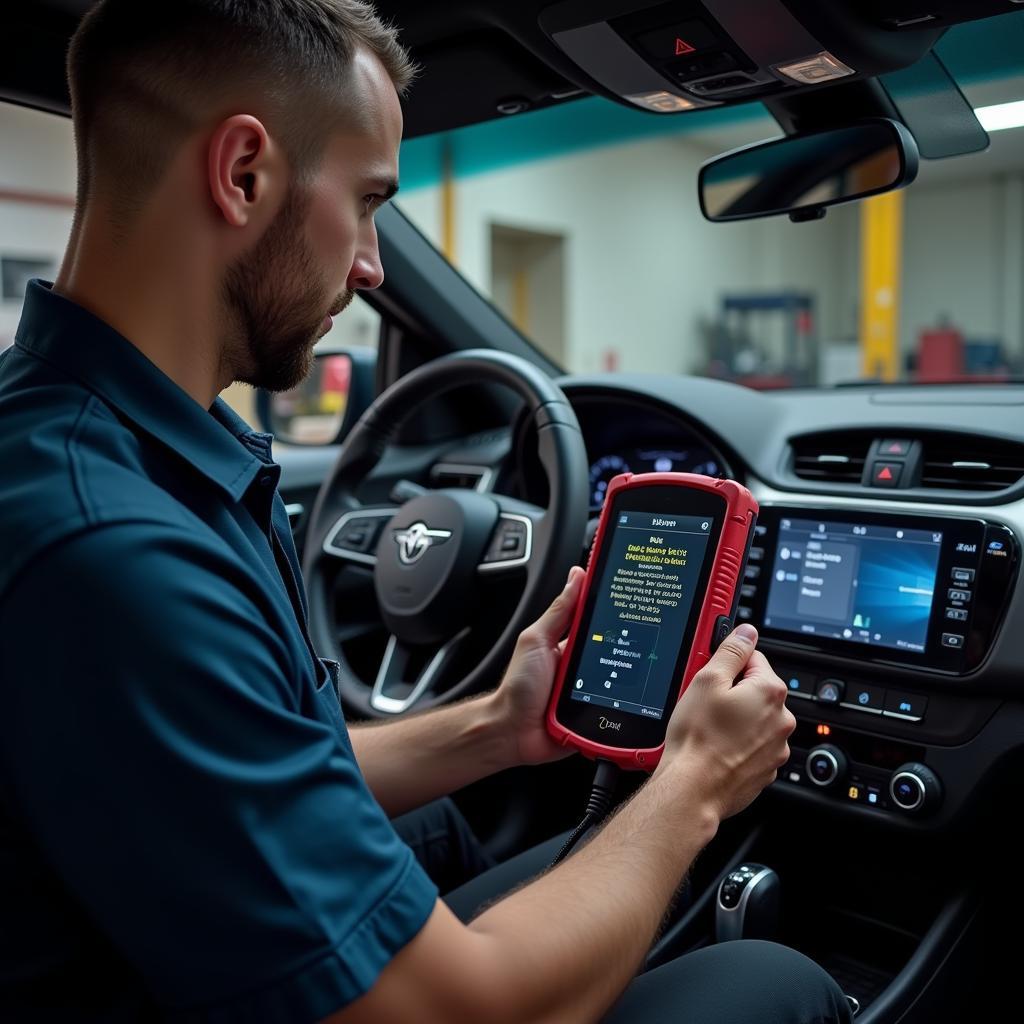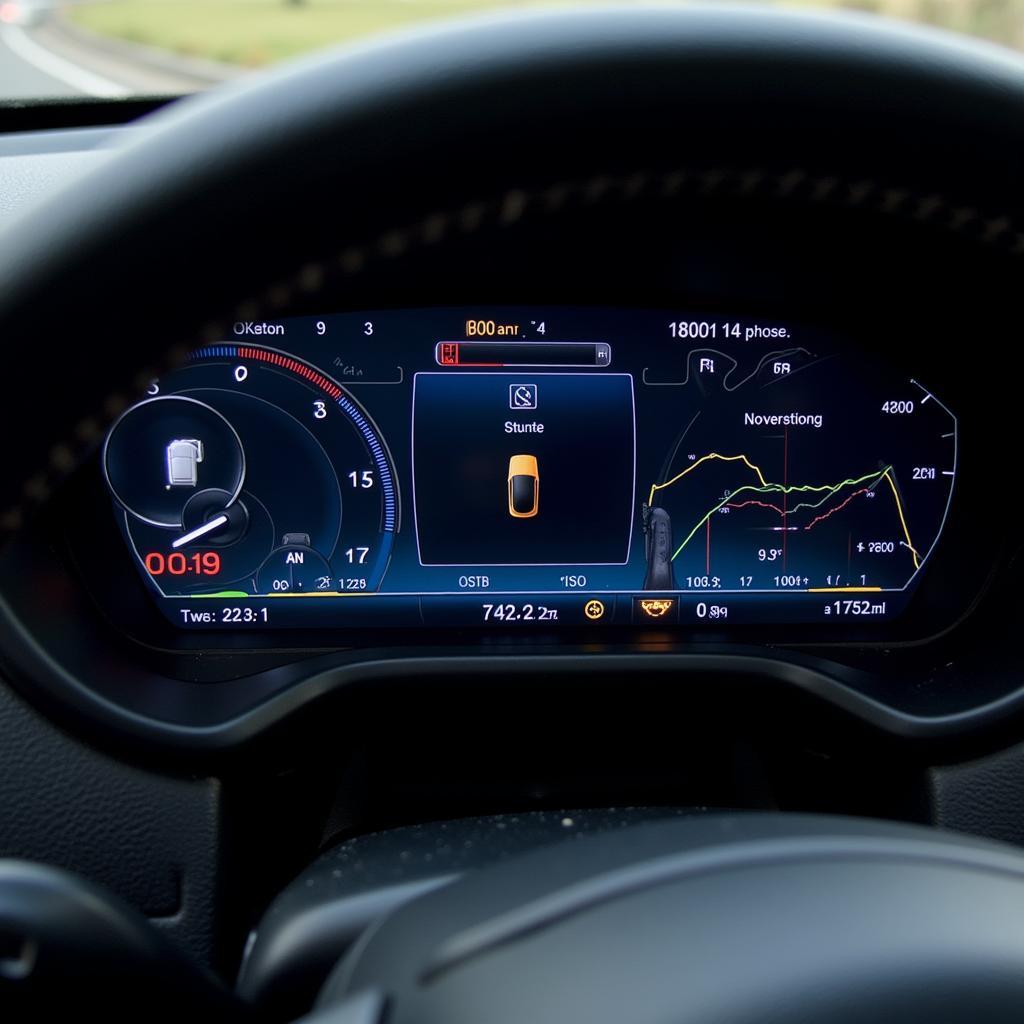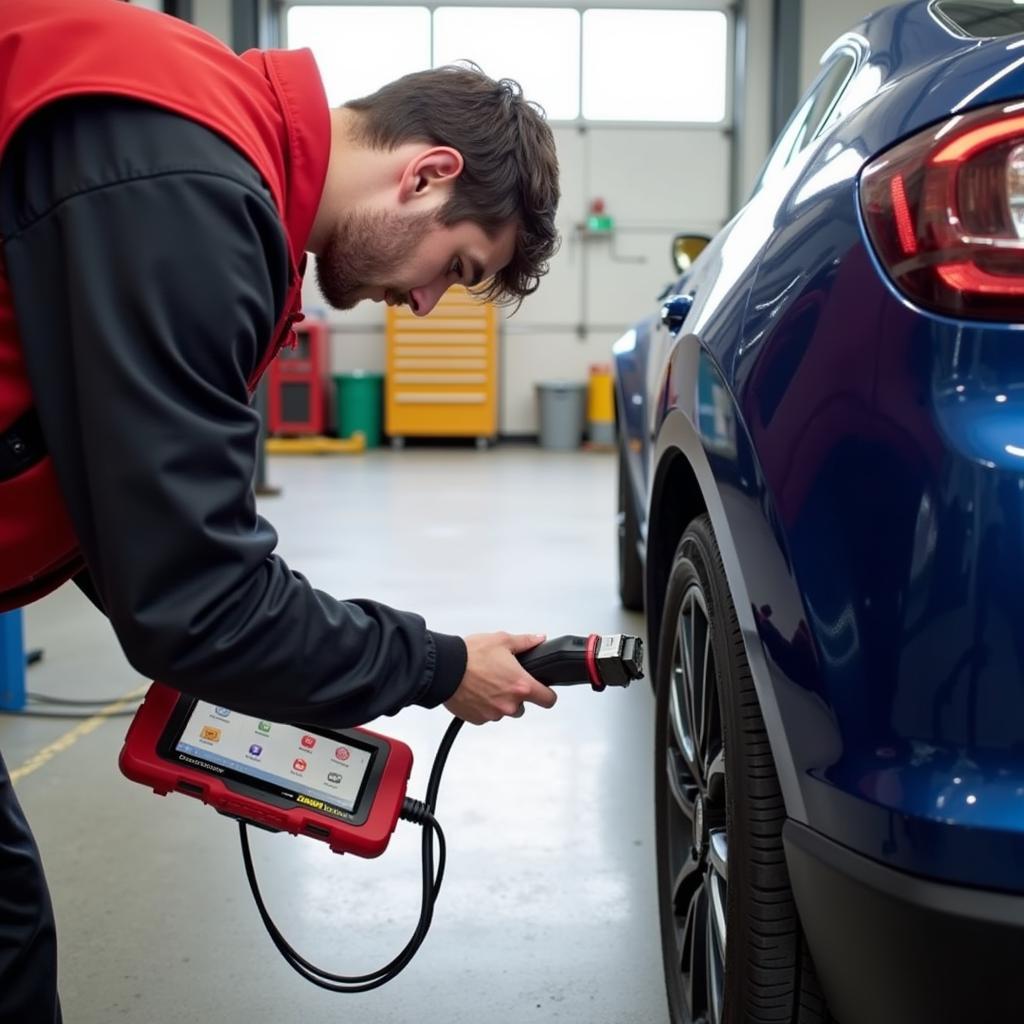Finding the right diagnostic car tool can feel like navigating a maze. With countless options flooding the market, each boasting unique features and capabilities, pinpointing the best fit for your needs can be overwhelming. This guide cuts through the jargon to help you understand what to look for in a diagnostic car tool and empowers you to make an informed decision.
Understanding the Importance of Car Diagnostic Tools
Before we dive into the specifics, let’s address the elephant in the room – why is a diagnostic car tool essential? Modern vehicles are complex machines, reliant on intricate networks of electronic systems. When a problem arises, a diagnostic tool acts as your personal mechanic, translating cryptic error codes into understandable language. This allows you to identify the root cause of the issue, saving you time and money on unnecessary repairs.
 Mechanic using a diagnostic car tool
Mechanic using a diagnostic car tool
Key Features to Consider
Not all diagnostic car tools are created equal. Here’s a breakdown of crucial features to consider:
1. Vehicle Coverage: Ensure the tool supports your vehicle’s make, model, and year. Some tools specialize in specific manufacturers, while others offer broader coverage.
2. Functionality: Determine the tasks you need the tool to perform. Do you simply want to read and clear basic engine codes, or are you looking for advanced functionalities like live data streaming, bi-directional control, and module coding?
3. User Interface: Opt for a tool with a user-friendly interface, clear navigation, and easy-to-understand instructions. A tool with a color display and intuitive menus can significantly enhance your user experience.
4. Connectivity: Consider how the tool connects to your vehicle and whether it offers wireless capabilities via Bluetooth or Wi-Fi. Wireless connectivity provides greater flexibility and convenience.
5. Updates: Regular software updates are vital for ensuring compatibility with the latest vehicle models and accessing new features. Choose a tool with readily available and easy-to-install updates.
 Close-up of a diagnostic car tool displaying engine data
Close-up of a diagnostic car tool displaying engine data
Types of Diagnostic Car Tools
Diagnostic car tools come in various forms, each catering to different needs and skill levels:
1. Code Readers: These entry-level tools read and clear basic engine codes. They are affordable and suitable for DIY enthusiasts who want to diagnose simple issues.
2. OBD2 Scanners: Building upon basic code readers, OBD2 scanners offer additional functionalities like live data streaming, freeze frame data, and emissions readiness checks.
3. Professional-Grade Scanners: These comprehensive tools cater to professional mechanics and offer advanced functionalities like bi-directional control, module coding, and access to manufacturer-specific systems.
Top Considerations for Choosing the Best Diagnostic Tool
1. Budget: Diagnostic car tools range in price from affordable code readers to high-end professional scanners. Determine your budget and prioritize the features most important to you.
2. Skill Level: Assess your comfort level with automotive technology. If you’re a DIY beginner, a user-friendly code reader or OBD2 scanner might suffice. Professional mechanics, however, require the advanced capabilities of professional-grade scanners.
3. Vehicle Type: The type of vehicle you own significantly impacts your choice. If you own a late-model vehicle with complex electronic systems, invest in a tool that offers comprehensive coverage for your make and model.
 A mechanic using a diagnostic tool connected to a car’s OBD-II port
A mechanic using a diagnostic tool connected to a car’s OBD-II port
“Investing in the right diagnostic car tool is akin to having a personal mechanic at your fingertips,” says John Smith, Senior Automotive Technician at XYZ Auto Repair. “It empowers you to understand your vehicle’s health, preempt potential issues, and make informed decisions about repairs.”
Conclusion
Choosing the best diagnostic car tool requires careful consideration of your individual needs, budget, and skill level. By understanding the key features, types of tools available, and factors influencing your choice, you can navigate the market with confidence and find the perfect tool to keep your vehicle running smoothly. Remember, a well-chosen diagnostic tool is an investment in your vehicle’s longevity and your peace of mind.
For further guidance on car diagnostics and related topics, explore our insightful articles:
- How much does a diagnostic for a car cost?
- What is a car diagnostic interface scanner used for?
- How to run a diagnostic test on a car
Need personalized assistance selecting the ideal diagnostic car tool? Contact our expert team via WhatsApp: +1(641)206-8880, or Email: [email protected]. We’re available 24/7 to guide you towards the perfect solution.

Leave a Reply